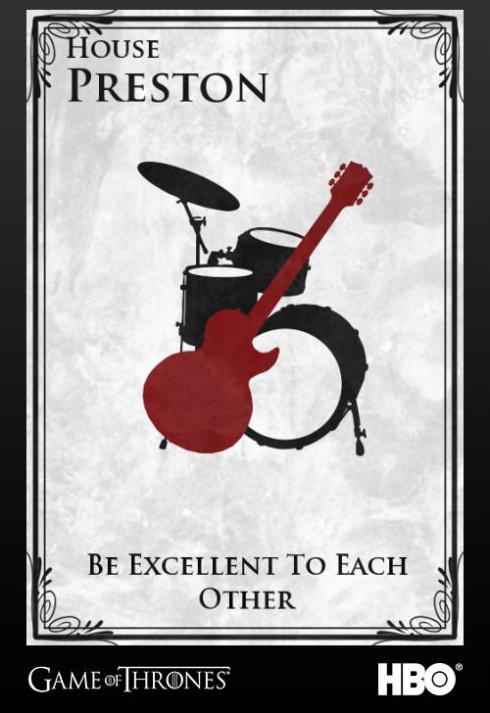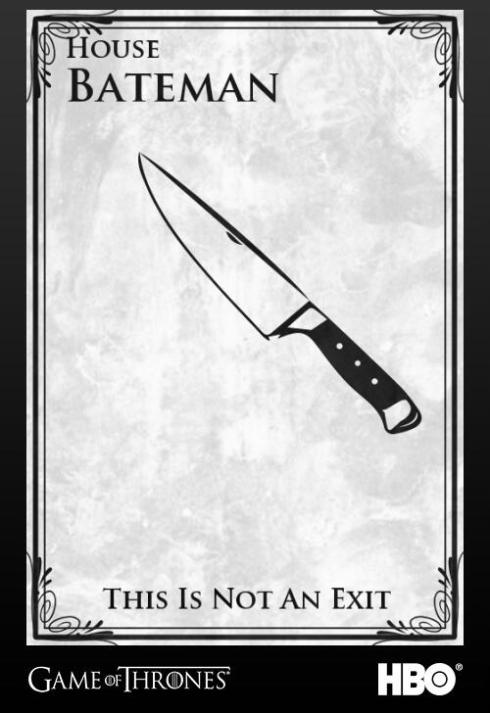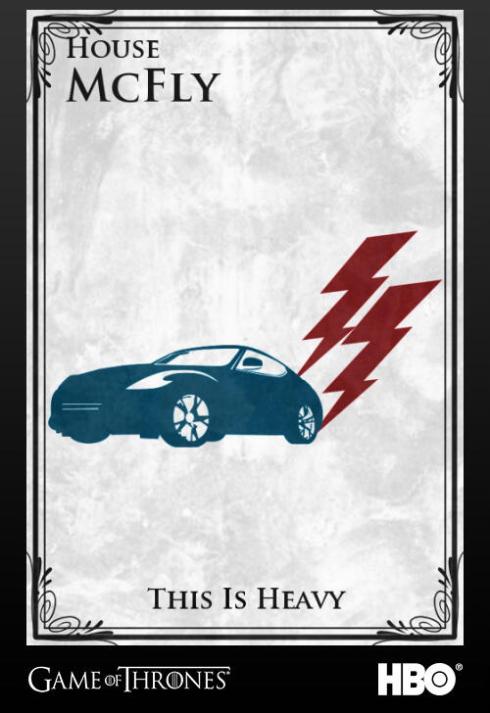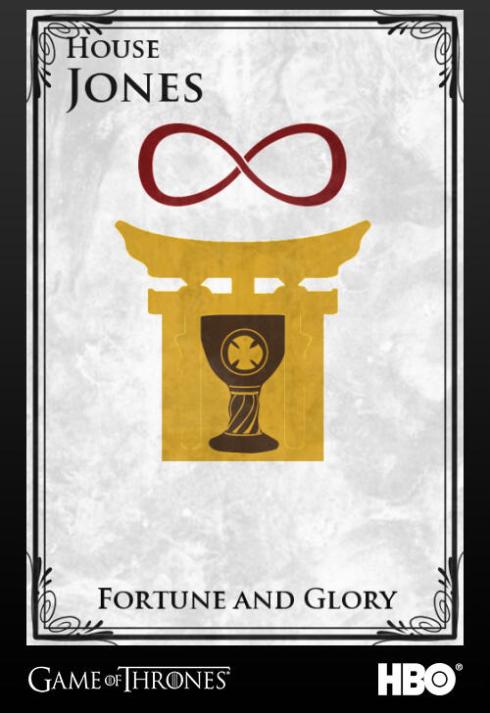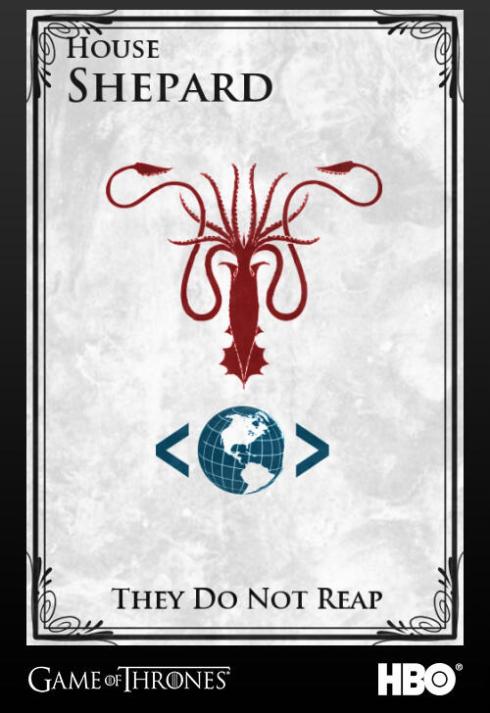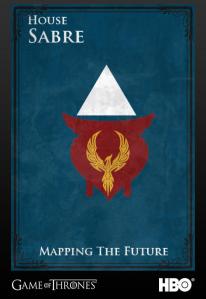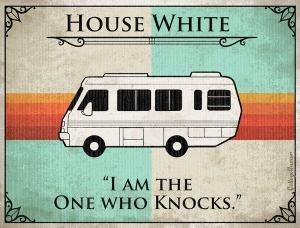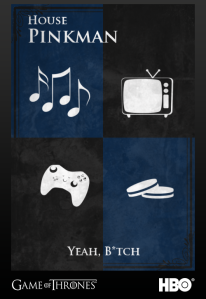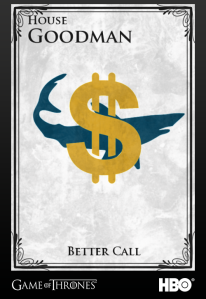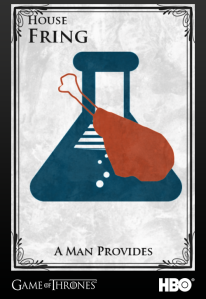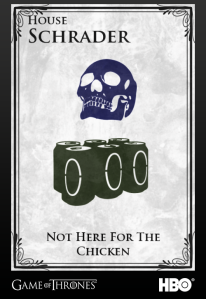It’s been a busy week, and I have a few other projects in the pipeline at the moment, some of which I hope to announce shortly. That’s left me little time for blogging, and my mental energy has been thoroughly divested by some other stuff that I’ve needed to do.
At the same time, I had a window and a prompt to dig around in my archives and committed as I am to bringing content to this blog, I thought I’d cheat, and re-introduce/re-evaluate material from a bygone era.
One of the things that I did regularly when my time was more plentiful was participate in the RPG.net Comic Book Drafts. Effectively, this was a cross between fan fiction and fantasy football, in which existing superheroes are ‘drafted’ based on a random order, taken out of circulation and added to the writer’s ‘team’. A fictional history/backstory is invented and, in some cases, actual issues in comic script format were written and posted up on the forum. It’s quite a fun game to play, as you carefully structure plot arcs with certain characters in mind, only to be gazumped at the last minute by someone who is doing something similar, or perhaps even vastly different.
Though the tradition initially started with straight lifts from the continuity of the Marvel and DC Universes, it became such a popular past-time around the boards that variants began to be introduced. One of those variants was the “Alternate Universe” version of the DCU, similar to the Tangent Universe – reusing or varying codenames and characters based on recontextualising where they come from and key points in their life. This wasn’t a detailed “what if” scenario, where a specific altering event occurred, but more a general guide for developing variants on the DC characters. The whole draft can be found here.
Anyway, this brings us around to my own contributions. But before that, a brief digression!
Back when the DCU had a history, as opposed to the still (theoretically) to be filled in melange of influences and eras it has now, the history of the (old) DCU contained the Justice Society. This team fought in WWII and had the original superheroes (Alan Scott, Jay Garrick, Ted Grant, etc, etc), who semi-retired after a brush with McCarthy-ism. Sometime later came the Justice League of America, and its contemporaries – the heroes of the modern era.
Unfortunately, given the longevity of DC Comics characters, there was a problem with the elasticity of the ever moving now. When the Justice League was created in the 1960s, the heroes of the ’40s required no special explanation for their role as elders of the community. In their 20s and 30s in the ’40s, in the ’60s, they were in their ’40s and ’50s, still legitimately active, if older, and requiring no special factors to explain their interaction with the younger heroes following in their wake. As the “present” moved forward though, the explanations became harder and harder to manage. By the ’80s, the Justice Society heroes should have been in their 60s and 70s, but the 90s, their 70s and 80s.
Given the range of fantastic elements in comic books, explanations were found for the Justice Society to still be active in the present. Life extending vita-rays, sojourns in parallel dimensions, superpowers that prevented aging, etc, etc. As, however, the “modern” superheroes clearly didn’t start in the ’60 and instead started somewhere between 5 and 10 years before wherever the present was, there was a gap. A big gap.
If the DCU had all these superheroic elements in the ’40s, what happened between then and the ’90s (or the ’00s)? Did supervillains just decide to go into retirement? Did all those supersoldier programs vanish? DC danced around the question for a number of years in a number of different ways. The New 52 has removed the question by erasing the Justice Society and all its WWII-era adventures. Superheroes started five to ten years ago. The end.
But in the old DCU, one of the solutions proposed was that there had BEEN no such gap. That after a brief fallow period between the decline of the Justice Society in the ’50s, the late ’60s through late ’70s had been the purview of the hilariously named ‘Justice Experience’ a hippy-disco-heavy-metal superteam including a disguised Martian Manhunter and various other themed baby boomers, including:
- Acro-Bat
- Bronze Wraith (aka Martian Manhunter)
- Major Flashback
- Mister Action
- The Manx
- Song Bird
- The Who
Very naff, but possessed (to me at least) of an undeniable charm. They only had a few appearances in flashbacks, either through Martian Manhunter’s shortlived solo title, or in the pages of Chase (a great series about a government agent assigned to track superheroes, who was descended from one of the JE’s roster. She’s reappeared in the DCU, though her backstory is as yet unresolved). I think it’s safe to say in principle at least, that I’m a fan.
Every member of the team, except the Martian Manhunter, was KIA, and the issue of the era gap seemed largely unimportant enough to the reading public that it was left alone. Aside from those rare appearances, which didn’t really provide personalities, or even complete assessments of the powers and origins of those heroes, the Justice Experience was effectively forgotten. It always struck me though, as an opportunity to add something to the DCU mythos, an area of a crowded universe that was largely untouched.
Which – to bring us back on point- is why when I was involved in drafting a tangent universe, I came up with my own spin on the Justice Experience. Given that it’s floating around, disorganised, on an internet forum, I thought it was worth indexing before it’s lost in time (like tears in rain). You’ll get the most out of this if you’re aware of the DC characters involved and can see how they’ve been turned around, but I like to think the team is interesting enough on its own. Enjoy!
SGT ROCK AND THE JUSTICE EXPERIENCE
1. Sergeant Rock
“What, you want the REAL story of how we got out? It’s a big story, I’ll tell you that.
I don’t know really where to start. America was tired. Straight from WWII into a Cold War. Paranoia, everyone on the back foot. We didn’t know what superpeople the Reds were planning to send against us, but we knew we were worried. It was like we needed some kind of shitkicking just to get our act together. What that says about the American psyche I don’t know.
So, when China started up with Russia in the mid-40s, the next thing we had to worry about was Communist spread. When Vietnam started acting up, it seemed natural for us to go in. The U S of A and friends, up against the red scare of the Great Ten and the Rocket Reds. A few hundred thousand GIs, packed off to the jungles and swamps. Including me.
I’m not gonna waste your time with what happened in the war. We all know how that turned out. But after WWII and Korea – all those drawn out superpowered conflicts wore us down. In the late 1960’s, we finally abandoned trying to produce atomic technology in weapons for upscaling the superhuman arms race.
Maybe something about that, the new race of ‘superpeople’ stirred something in our home. The times, they were a-changing, and the flower power movement was stirring things up. Across the sea, our boys wanted to come home.
So, flash to me. It’s 1969. I’m a kid running through the jungles near Hanoi. My platoon’s in lousy shape. Our CO bought it a couple of days ago. Our sergeant, he’s a negro, a big guy called Mal Duncan. Loved records, even if we couldn’t take ’em with us. He’s got a cool head, keeping us all together. We all knew Duncan didn’t think much of the war – but he wanted us all to survive. I remember our call signs were all Jim Morrison lyrics.
Anyway, we’re tear-assin’ through this jungle, Charlie on our collective tail, and we know we’re about to get it. We can hear them, streaking over-head. When suddenly, I realise it’s NOT Charlie.
There’s a streak of light, and something comes crashing down in the jungle. We run towards it, and – there’s this guy. Big. Shaggy black hair. What looks like a leather jacket. Pale, grey skin. Like KISS had taken some super-soldier-serum and joined the war effort. He was hurt, pretty bad. And smashed in ruins around him, looked like some kind of motorcycle.
He was holding something. A beautiful guitar, black and chrome and cherry red. His voice, it was like the throttle of an engine. We didn’t know much about him, but we knew that he was dying.
“Which one of you bastiches is Mal Duncan?” he asked.
Mal walked forward, poleaxed. He knelt down by the dying alien. We all stared. It was like the jungle was silent.
“It’s too late for me. I’ve been fragged good. But the main man did good for once. I’ve got it – the greatest treasure the Czarnians ever produced. And it’s singin’ for me…”
The alien coughed, and blood came up. Shaking his head, he held forth the guitar. “It’s tellin’ me that you, Mal Duncan, are the hardest-rockin’ bastich in this part of the universe. It’s chosen you, Duncan.”
As the alien said it, the guitar hummed. An eerie sound, on the edge of hearing. But beautiful.
An expression like rapture came over Duncan’s face. He reached out, and took it. With a shudder, the alien fell silent, and we knew he was dead.
There was no sound around us. We hardly dared to breathe. But then, I heard the sound I thought of before – Rocket Reds, overhead and close.
Duncan didn’t even blink. He set the guitar against his chest, and snapped off a riff like B.B. King.
There was a white light, and me and the rest of my platoon felt ourselves lifted up in the air, by some weird, impossible force. There was a wall of sound, all around us, shielding us from enemy fire. The Rocket Reds shattered against it – but I saw the operators coasting gently back to Earth.
Mal Duncan played that guitar, and played us all the way back to base camp. He played himself home, and into history.
Mal Duncan might have led us through the jungle. But Sgt. Rock led us out of it.
– From “Memories of a Rock Superhero – by ‘Airwave’ Jordan.
2. Death, the Atomic Spectre
In the late 1950’s the world was desperate to crack the next stage in the superhuman arms race. The decline of the attempts at the nuclear bomb allowed the great scientific minds of the day to focus on the methods of crafting the next superhuman.
The Trinity Tests, cobbled together from the last vestiges of the failed Manhattan Project, were designed to make the atomic man.
It was not to be.
In the dustbowl valley where the poor soldier was strung to the particle accelerator and doomed forever, J Robert Oppenheimer looked out at what he was about to build and had his mind echo the words of the Bhagavad Gita “Kalo Asmi Loka-ksaya-krit Pravardho, Lokan Samartum iha Pravattah: Now I am become Death, the Destroyer of Worlds.”
The test was a failure. The research team was killed to a man. But the words of the Gita attracted the attention of Rama Kushna, the Goddess of Nanda Parbat. She took pity, mixed equal in wrath, on the soul of Oppenheimer, and elected to return him to Earth, to spread the word that nuclear weapons and nuclear people might destroy the planet. She also imbued him with enough power to fight off the wayward superbeings of today and tomorrow.
Returned in the horrific, skeletal, wraithlike form of a nuclear victim, behind the horrifying visage was a heart of sadness, warning, and regret. The power to level mountains, the courage and compassion to instead hold a dialogue with the world.
J Robert Oppenheimer was Death, the Atomic Spectre!
3. Brother Power the Geek
Like Swamp Thing, living Elemental embodiment of the Green, Brother Power the Geek is the Elemental, or para-Elemental, of Dolls. Although he was, at first, thought to be ‘simply’ a mannequin enchanted to life, the greatest mystics in the world uncovered that, in fact, he was connected to all representations of anthropomorphic life in three dimensional representations – dolls, mannequins, statues, gargoyles, dummies.
It’s unfortunate that this incarnation of cosmic (or semi-cosmic) power had the easy distractability and difficulty in comprehension of a life-long drug abuser. It’s however very fortunate that he has the belief in the fundamental brotherhood of humankind, of peace and love and good times that his hippy owners installed in him. It’s also handy that he’s effectively immortal and invulnerable – even if his body were to be destroyed, there’s literally millions of vessels for him to jump into.
Although Death, the Atomic Spectre is readily seen as the most powerful member of the team, ask him candidly and he’ll admit that Brother Power has capabilities undreamt of. The freewheeling free-love freak-out prophet is the exact antithesis of the portentous, deeply concerned Spectre, but they share a love of nature and a desire to protect all living things. The Justice Experience works hard to keep Brother Power focussed, but when they succeed, he’s one of the post potent tools in their arsenal.
4. Doctor Double-X
When biologist Dr. Larry Trainor began his research into the human genome in the mid-1970’s, he, like so many others, had no idea of how close he was to unleashing the miraculous.
But, patterned by an obsession with the super-starlets of yesteryear, Dr. Trainor sequenced the perfect female gene sequence. The XX. Decades ahead of his time, Dr. Trainor was able to devise a serum to ‘unleash’ this potent female force – derived from the ‘feminine mystique’ inside his own body.
Doctor Double-X, as she became known, was Trainor’s vision of the perfect woman – a vision derived from his own subconscious. Amazingly powerful, but at the same time possessed of a unique vulnerability, the Doctor was everything gruff, masculine Trainor was not, but perhaps, secretly hoped he could be.
Endowed with the power to phase through objects and project energy blasts, Double-X became a fixture of the mid-generation superteams, and a long-time companion to Sgt. Rock.
5. Adam Queer, the Hero from the Planet Rann
A’dham was an unparralled adventurer on the planet Rann. Master of the warrior-poet arts of their people, he bestrode the world like a collosus. The monsters of the Outer Dark fell beneath his blade. Cities rejoiced in his passing. The snare-beast haunted towers of mystery were his to plunder. Many men flocked beneath his banner, and his blankets.
In time, A’dham’s prowess, and his hubris, grew so great that he rose to challenge the Synn – the Seven Unknown Gods of Rann.
He won.
Broken and defeated, the Gods passed to him the Eyespider, the Bow of Perfect Aim, the Myrra Crown and the Zeta Blade – the everlasting energy sword that could foretell danger and cut anything.
But the blade carried with it a curse. Or a blessing.
Linked with Rann’s cousin-planet from the far side of the universe – Earth – the Zeta Blade teleported A’dham to that brave, new world to conquer.
Where instead, he was conquered himself. A’dham fell in love. With a quiet, gentle man, with the eyes of an angel and the hands (and career) of an artist. His name was Terry Berg. Soon, A’dham (or Adam as Earthlings insisted on pronouncing his name) dreaded not when the Zeta Blade would draw him to Earth, but when it would send him back to Rann.
One fateful trip though, came too late. Adam returned too late to save Terry, set upon by bigots in the home they shared, left to die amongst the shattered ruins of his art.
Red-eyed and red-handed, Adam swore vengance. Donning his jetpack and taking up the Zeta Blade, Adam took to the nights of the city – turning the hunters to the hunted – the haters to his prey.
Even after he had found and finished those who had killed Terry, Adam was unsatisfied. He knew then that he need to not only help those not free to love as they chose to love, but any and all who might fall victim to the callous night. He became a grim protector of the streets of San Fransisco. This was 1972.
Knowing that it was not enough to punish the guilty, Adam knew he had to change the innocent. He took the suffix ‘queer’ with which the papers had labelled him and turned it into a name. He began to speak out, to fight back, to educate.
In time, he was joined in his quest by a man all the way from New York City – Danny Brickwell, who called himself “Stonewall”.
A grim figure of terror to the San Francisco underground, an epic figure in the battle for LGBT rights, Adam Queer also serves as the Justice Experience’s tracker, vigilante and detective.
6. Funky Flashman (aka Krakkl of Kwyzz)
This one’s the new one from the BeeGees, goin’ out to all you groovy babies in Radioland…
Was this it? Had the humans finally made contact with the vibrational substratum of Frequency X? Did they perceive the dimension that dwelt below them, in the humming waves of radio. The sphere of sound – the planet Kwyzz?
No. Just interference from one of their primitive transmitters – a cargo cult to the Radio Force – that prime mover of electromagnetism that made Kwyzz’s denizens the fast things in four dimensions.
But wait – what is it that Krakkl HEARS? What dread drum beat portent, what siren song. That bass. That treble. That falsetto. The music of Kwyzz is nothing like this!
Travel to the upper stratum is forbidden. The Klan of Kwyzz commands it, for our own protection! Unforeseen consequences to the poor transmission that phases into their range!
But…that music.
Krakkl has no choice.
Down, down, down to limbo town, where that funky sound is goin’ around! This is disco. This is what radio is FOR!
Krakkl is in one of their transmitters – Krakkl’s beautiful radio-self bound down in copper chains. There is someone with his ear close to it – someone listening, and funelled like a cannon-shot Krakkl is speeding…
…inwards. Krakkl has a body now! Krakkl cannot come loose. Who is this man? Krakkl cannot say. His consciousness is gone! Back, perhaps, to Kwyzz, the first explorer of his kind to Frequency X? Who knows?
Krakkl has a body now. A human body. But the song of radio – the true Krakkl, he still flickers and hums in this new body. Krakkl can talk like them – Krakkl must eat and drink like them. But Krakkl can run. Run like his old self. And, foxy momma, Krakkl can dance.
7. Earth Girl
Miami. 2017.
Vandal Savage glanced at the last remaining members of his survey team. The human cannonade, Big Shot. The Peacemaker legacy hero, Billy the Kid. The Entertainer.
I wanted to steer the world to safety. Look at me now..
The red haze was coming across the horizon. Cities vanished beneath that eerie scarlet wall. Here, in the Last Fortress, they waited for the end.
Suddenly, there was a hiss, like sands pouring through an hourglass. The Sandman, once an assassin for justice, but now endowed with the mysterious energy of night, guardian of the world of dream, materialised before them, downshifting into regular consciousness.
“There is no egress through the River of Dreams,” he intoned, “Whatever we do, we do here.”
Dick Grayson, Sky Pirate, looked out the window at the no man’s land and smiled a rueful smile. He did not speak. Beside him, Arsenal, Oliver Queen cracked the knuckles on his cybernetic arm. “That’s it? Farewell Leicester Square? Goodnight Saigon? Say goodbye to Hollywood?”
Vandal Savage nodded. “And so it goes. As I witness the first, we witness the last. Worse comes to worst. The end of history.”
A calm, level voice echoed from the red. “No. It will not end here.”
They whirled to see the Kryptonian appear from a localized time vortex, flanked by two women. “I believe you know Natasha Irons, the Atomic Woman and inheritor of Oppenheimer’s mantle. She’s got a way to save us all.”
Natasha Irons looked across at the assembly of Earth’s last champions, most of whom she had known since childhood. “Okay. It’s a long shot. But this is Weeja Dell. She’s the Monitrix of Earth-69. An exile of the Fourth Dimension. And, as far as we can gauge, the spirit of this planet.”
Big Shot stood up, his high voice in contrast to his massive metal frame. “The Monitors? I thought they were all wiped out.”
The Kryptonian shook his head. “You thought wrong. The Fourth Dimension collapsed back into ours in an absolute time-space anomaly. The cracks have been appearing across the universe as far as 40,000 years in either direction.”
Weeja Dell’s voice carried a strange harmonic, like a finger dragged along a celestial wineglass. “We swore a pact of non-interference. Strict isolation. I know nothing. It was not until the dying of this planet drained the Bleed from my very veins that I knew something was amiss.”
Savage grew stony. “You did not think to check? Add your arts to ours? There may be something you could’ve done!”
The Kryptonian shook his head. “That’s not her style. As someone who operated for so many years in secret and isolation, you of all people should understand it.”
Billy the Kid spun a quantum six-shooter on his finger. “Besides, does she really know that much less than we do about it?”
Weeja Dell, soon to be refugee of two dimensions, watched the exhausted faces. “About what?”
Raven spoke up from her place near Grayson. “Tell her about it.”
Savage ran a hand through his hair, cleansing beads of sweat off his brow. His baritone voice kept level. “I don’t know what to tell you about the Stranger event. I only wish I did. We lived through those times, but we’ve never been able to pinpoint the exact cause of the disaster. We didn’t start the fire. Manhunter, perhaps the greatest detective I’ve ever known, died in the pursuit of the cause of this ecological tragedy.” The immortal master sat down, sighing heavily. “Only the good die young.”
“We can only tell you that sometime, in the mid-80’s something happened to change the course of human events, irrevocably,” said Grayson. “Don’t ask me why. We almost didn’t notice it. We damned us all whilst we were busy playing cops and robbers.” He grinned again, half bitter, half nostalgic. “Me mostly robbers.”
Natasha couldn’t contain her excitement. “Don’t you see? Weeja Dell is the Captain of the Shiftship Travelling Prayer. All those things the Kryptonian has told us about solidified time, they don’t apply to her. The Monitors, the whole fourth dimension, they’re above it, beyond it.”
“They’re creatures of the Longest Time. Hypertime.” continued the Kryptonian for her.
Savage thumped on the table. “You can do it, can’t you? This is the time! This is our chance!”
Weeja Dell looked at the assembled demagogues and demigods. She drew a shaky breath. “I’m scared. This is my life.”
Savage glowered at her. “We don’t have time for fear. An incalculable amount is resting on you.”
Oliver Queen stood up, blocked the path between Savage and the Monitrix. He glared at the immortal. “Way to put pressure on the woman.”
Savage snarled at him, his mask ripping with stress and inhuman savagery, a sound from the dawn of time. Jungle predator. “She’s a fourth dimensional entity and the only hope of saving not just everything that has been, but everything that could be. Whatever her personal feelings in the matter, they take a back seat to what is necessary. All our feelings do. She’s not a woman anymore.”
Unfazed, Oliver shot back. “Yeah well, she’s always a woman to me. You can’t intimidate her into handling this. It’s a matter of trust. You owe her honesty.”
All the fight seemed to drain out of Savage. “You’re only human, but you may be right.” He placed a scarred, coarse hand on Weeja Dell’s shoulder. “I know that you’re afraid. We all are. And the task we give you is a daunting one. But I know you can be capable of this. As a Monitrix, you will be inhumanly strong and fast. Almost invulnerable to all mortal hurt. That’s just the way you are. You’ll also have knowledge of Fourth Dimensional technology we can’t possibly match.”
The immortal paused, his voice softening. “And you’ll have the love and prayers of the last survivors of Earth going with you. Keeping the faith in you. Will you do it?”
Weeja Dell looked at those who had brought her here, then slowly bowed in acquiescence.
The Kryptonian checked a diode attached to his time-suit. “We estimate that our projected trajectory should put you in Allentown in 1980, though it’s possible you may stop in Nevada, instead.”
Natasha Irons patted the young Monitrix on the back, in encouragement. “Did you watch the archival footage we obtained for you? Read the histories? See that last Mnemonic Tube with those scenes from an Italian restaurant?”
Weeja Dell nodded. “I understand why you thought it so vital now.”
The Kryptonian looked up from his calculations, even as the Travelling Prayer rose into view outside, from nowhere. “What’s vital is that you master the New York state of mind. You’ll need to blend in. Convince them you’re their idea of an ordinary modern woman. An uptown girl. Shameless.”
Raven took off her hood, cutting off the Kryptonian mid-speech. “Don’t worry about him. His perspective on 80’s society is skewed. Just be yourself – it’s not that different from now.”
“Are you sure I can do this?” asked Weeja Dell.
The Dream Lord gave voice to their thoughts. “You must.”
After that it was a simple matter. Weeja Dell transitioned into the Shiftship. There was a humming noise then a sudden boom as it vanished.
“She’s on her way.” The Kryptonian looked sad at the announcement.
“You didn’t tell her, did you?” asked Vandal. “That the whole of existence, our timeline, will end if she corrects the problem.”
“She’s smart. She’ll figure it out. We were lost anyway.” In three short sentences Natasha Irons gave voice to the hope and despair of the human race. “My only worry is that the Stranger will catch up with us and disrupt the time-stream before she has a chance to resurface.”
There was a sudden coughing from a corner of the room. “V-Vandal?”
Savage turned, a desperate kind of hope kindling in his face. He almost leapt across the room.
Lady Liberty was gingerly sitting up on a cushioned pallet. A fine line of spider-web cracks, seeming to centre around her missing eye, but spreading across her body, were clearly visible. Flashes of the same red that consumed the world around them glowed through.
She and Savage stared at each other, for what seemed like an age, oblivious to the others.
“Uhhh…come on, kids,” said Oliver Queen, in the hush. “We should be movin’ out. See if we can buy our last, best hope a little more time.”
The Entertainer splayed his hands, and a jolly tune sprung from his sleeves. Circus music.
Grayson cuffed him across the head. “Jeez, James. Leave a tender moment alone.”
Queen’s armour rushed around him, segmented pieces calibrating themselves into a protected form. He leapt out the reddening window. The others followed after, leaving Liberty and Savage alone.
As soon as the last shadow fell out of sight, they moved closer. Vandal gazed down at her. “I have never been an innocent man. And I know I could not be another way. I go to extremes.” He took her hands. “But I will not deny that sometimes a fantasy comes to me. That we had not wasted all the long years in power, in struggle. That there could have been…something more…between us.”
Lady Liberty smiled at him, and raised a gentle, crumbling hand to his face. “Why so sad, my love? What your heart calls now, mine has always known. The night is still young.”
Savage smiled, afraid a little still of how much stronger she truly was. “Until the night ends, my valkyrie.”
They held each other, and watched the sky grow redder, and then dim. “Goodnight, my angel.”
The light faded.
Weeja Dell made it to 1980, arriving on Ellis Island with the rest of the tired, the poor and the huddled masses. Embodying the very soul of the Earth’s existence she fought tirelessly and endlessly to prevent any and all ecological disasters. Always in the vanguard of planetary defense, she made the acquaintance of the other powerful women tasked with the fortification of Earth, and modelling herself on them, took to wearing a costume and maintaining a secret identity as Kit Niedrigh, a.k.a “Earth-Girl”.
In time, she would guide the Justice Experience to the secret of the Stranger. But that was another story…
The Justice Experience, is of course, a supergroup, in both senses of the word. Once I decided I wanted to do my own version of the era, I wanted to put its social issues front and centre, whilst playing around with the pop culture representations of that generation in the margins. You may note, amongst other things, that Brother Power’s write-up is comparatively staid – I didn’t actually make any changes to him at all, and this write-up is just to record who he is for posterity and ease of reference. Everything in there comes from the great Neil Gaiman, who reworked the character in Swamp Thing some twenty-odd years ago. You’ll also notice that Weeja Dell’s future looks a little odd for two reasons, the first, because it’s populated by other drafted characters who themselves are “tangented” away from the core continuity, and because it’s composed entirely out of Billy Joel songs.
Anyway, those were my thoughts on what the superteam of the 70’s and 80’s might look like. Unusable, of course, as I don’t have any of the rights to ANY of these characters, and will likely never go anywhere near them. Nevertheless, in a market where the typical superhero stories are taken to be relatively repetitive, I think there’d be something to be said for an era appropriate mood piece. As a final part of the draft, I wrote a little vignette featuring the characters, which I produce below:
The Man that came to Gotham.
The fires were burning up in the Narrows.
Coming right down Kane Boulevard was a swarm of cars, moving with typical Gotham speed, which was to say, none. A haze of heat wafted across the city, the already blistering summer night wounded to the core, ripped raw and blazing.
This was the Midnight City in 1977.
Rioters hit the streets, screaming blood and thunder, because this night was, it seemed, to be the city’s last.
High atop the Statue of Liberation, Sergeant Rock looked across at the source of the madness. Astride Morrison Avenue like a Colossus erected to guard the homes of the fashionistas stood the 60ft capitalist who had caused this mess.
Gotham was in the worst economic crisis in American history. Crime was up over 81% and the city’s debts were through the proverbial. When the government bailout had been knocked back (‘Ford to City: Drop Dead!’ blasted the newspapers) things were bad enough that they’d even floated the idea of privatisation, not that anyone had taken it seriously.
Anyone except the Auctioneer. Monitoring Earth transmissions, he’d understood that the city was part of the free market now. And he expected most of the rest of the world as optional extras.
Rock pressed a button by the side of his fret, and talked through his guitar like Peter Frampton. Strange harmonics carried his voice to his associates, half a city away. “Flashman. You got crowd control covered?”
Spinning disco crazy through the smashed glass parade of 31st and Carmine, the Funky Flashman hustled an elderly couple right across to Ennis Island. “Feelin’ groovy. The Doc’s holding up the 59th Street Bridge long enough for the cars to get past.”
Rock’s voice came floating back. “Slow down, you move too fast. We’ve got to make sure the Auctioneer doesn’t follow along.”
“Slow down? Not in my dictionary, baby. But relax – he’s waitin’ for it.”
That would have to do. Flashman, at least, would be able to react fast enough if this all went to hell – and Doctor Double-X would be able to curb any of his more…reckless excesses. They’d done well, and Sgt Rock would give it to them straight. “Cool.”.
Looking across the tiny tiered balcony on the statue’s crown, Rock gave a nod to Brother Power the Geek, lost god of the Flower Children and elemental zeitgeist. And secret weapon.
Brother Power smiled and gave a peace sign with one hand, and the thumbs up with the other.
Rock let his fingers slip onto the right chord. “Hit it.”
DanananananaaahNAHnah!
Brother Power slumped, his raggedy body crumpling. There was a moment of silence. Then a shudder, barely audible above the Sergeant’s shredding, but definitely palpable, rolling under foot.
Something like consciousness flickered in the Statue of Liberation’s eyes. The sword, held poised defensively, swung. Mammoth feet of stone and metal wrenched themselves from the platform.
Running lixx along the edge of hearing, Sgt Rock played a wall of sound. Shields hummed and wavered around the icon, wrapping it in a protective bubble of energy. The ground beneath her feet hissed and crackled, and then an impossible shower of sparks and energy poured off from beneath them.
The Statue, sword raised, took to the air. Adam Queer, hero from the Planet Rann, stood forward and released the straps on his tunic, letting it fall to the floor, and removed his winged cap, shaking loose his hair.
“You better be right about this, Rock.”
Hanging from a rafter was a hastily lifted Baron Big Belly mascot costume. Grimacing, Adam donned it.
The statue’s book thudded into the midst of Morrison Avenue, the traffic cleared by Funky Flashman scant seconds before. Sending up a cloud of dust, it coated the Auctioneer, who stumbled and stuttered.
Even as the statue touched down with elegance in the midst of downtown Gotham, and the Auctioneer turned with surprise on his face, the googly eyes of the Burger Burgher costume rolled downwards, and the leering, bun shaped head began to speak. “Howdy, Adam. It’ll work. Just, move as you would move, and I’ll make sure the statue does the same.”
Brother Power. Doll Elemental.
Adam Queer drew forth the Zeta Blade and flourished it. From outside, visions poured into his mind of what the statue would see, what the statue would feel.
They were right, it would work.
The Statue of Liberation whirled its simple toga as it dropped into an elegant kata. The titanic sword, enhanced with the rippling power of Sgt Rock’s music, spun as he spun the Zeta Blade.
The Auctioneer turned with shock on his face. Seeing the weapon at the ready, he raised his hands defensively. “Wait a picosecond! I’m a businessman!”
Adam Queer, and the statue, flashed a predatory smile. The statue’s free hand beckoned.
“Come then. Pay the price.”
PS: I’d be remiss if I didn’t point out that Kurt Busiek actually devoted a fair bit of time and effort to this in the excellent Astro City: The Dark Age. Freed from the limitations of a hidebound, big two, continuity, Kurt did what Astro City always does, and examines the pop culture and comics culture of the relevant eras through the lens of its superhero characters.
